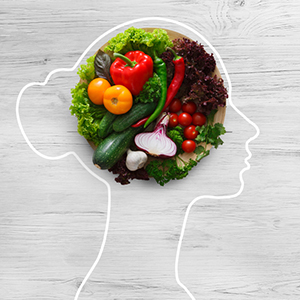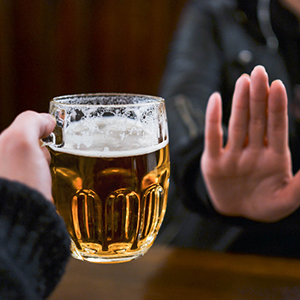What Is Stress?

Stress is where you feel too much emotional or mental pressure. It affects how you think, behave, act and feel. It’s easy to lose your temper, become overwhelmed or act unreasonably when stressed and this has a negative impact on your body too. However, stress can be different for different people.
A situation that can stress one individual may not affect another. Work life, relationships and financial problems are the main contributors to stress and this mental unrest may start affecting your physical wellbeing too. Headaches, dizziness, sleeping problems, and muscle tension can be the effects of stress in most people.
What Is Anxiety?

Anxiety is a feeling of worry or fear. It's considered as a survival mechanism but too much anxiety can lead to stress and low mood which isn't good for your physical and mental wellbeing. Anxiety can have a direct effect on your behaviour and thoughts, and prepares your body to fight back. The problem arises when anxiety strikes in unwarranted or the smallest of situations and leaves you in a ‘fight or flight’ situation.
What Is Low Mood?
Low mood is one of the first symptoms of depression. It’s when you feel blue, down, unhappy or flat. We all have bad days when we feel low, but if this is a regular observation, then you might be dealing with a low mood. Low mood affects both your mental and physical well-being; physical symptoms include reduced appetite, irregular sleep patterns, feeling tired and reduced sexual interest.
Behavioural changes include feeling irritated, avoiding social interaction, negative thoughts and being unable to enjoy things you did before. Getting enough sleep, talking through the problems, and taking positive actions are simple ways to deal with a low mood. However, if your low mood is due to some vitamin deficiencies, or hormonal changes, natural supplements or aids can help you get relief from this situation.
Brain Health
Brain health refers to your ability to have an active and clear mind, to remember things and learn new skills. Low mood, stress and anxiety directly affect your brain health and you need to keep these at bay to steer clear of depression, Alzheimer’s or other mental disorders.
A healthy brain helps you communicate better, think rationally, solve problems and focus on the right things in life which minimises your risk of experiencing low mood, stress or anxiety. Your sleep patterns, how much you exercise, what you eat, how you socialise and how you manage stress can all have an impact on your brain health and if you aim to keep it at optimal level, you will need to balance these factors.
Foods To Boost Brain Health

Ageing, lifestyle and the environment can cause oxidation and damage of brain cells. Antioxidants are required in the form of food or supplements to help reverse this process. Blueberries, raspberries, broccoli, kale, spinach, and other leafy vegetables are termed as ‘brain foods’ as they're rich in antioxidants and can potentially slow down the ageing of the brain.
Additionally, studies reveal that Vitamin C and E can potentially improve brain health; you can opt for foods rich in these vitamins or choose supplements that are a combination of the two. All types of Vitamin B are known as memory boosters and are present in the brain. Consuming foods rich in these vitamins can help improve cognitive functioning of the brain.
How To Deal With Low Mood, Anxiety And Stress?
Stress, anxiety and low mood are interlinked and they can form a vicious circle before you realise. For instance, you're stressed about a presentation you need to deliver. The fear of public speaking or being judged makes you anxious which makes you nervous and leaves you feeling miserable leading to a low mood. The low mood in turn affects your performance during the presentation leaving you stressed and so on.

Exercise - Physical activity helps release endorphins which are known for their mood lifting abilities. Engaging in exercise or physical activities like sports, indoor games, swimming or biking can distract you from your worries and elevate your mood. Meditation or yoga can provide mental peace and help you concentrate better
Social interactions - Whilst you may prefer keeping away from people or any kind of interaction when experiencing low mood, talking about your problems or things that are affecting you can make you feel more relaxed. Connecting with friends and family can also help you put things in a better perspective and distract you from stressful situations.
Restrict alcohol - Studies show that 34% of Brits use alcohol at some point of time to deal with stress or anxiety, but it has been reported that alcohol actually makes it worse. Alcohol disturbs the processes in your brain, lowers the level of ‘happy hormones’ or serotonin in your brain and can make you feel low. Reducing or restricting the consumption of alcohol may therefore prove beneficial as alcohol is known to exacerbate low mood.
Diet for low mood - Foods like oats, bananas, oily fish, lentils, turkey breast and spinach help improve your mood and keep stress levels low. Turkey or chicken breasts can boost the production of melatonin that helps regulate sleep, and increases the level of serotonin that helps you avoid feeling blue. Other foods help balance the nutrients and vitamins in your body and regulate the hormones to keep anxiety, depression and low mood at bay.

Vitamins and minerals - Research indicates that foods rich in Omega 3 fatty acids such as krill oil or fish oil have a positive effect on mood and can also be used to cope with depression. Foods rich in folate or folic acid such as fish, meat, eggs and milk are known to help regulate sleep and mood by facilitating nerve cell communications. Magnesium is another mineral that facilitates relaxation and helps cope with sleep disorders. Selenium is an antioxidant rich mineral that supports cognitive function and is present in many supplements.

Supplements - Herbal and all-natural supplements have become increasingly popular because of their ability to help combat various symptoms of low mood, stress or anxiety. These over the counter capsules may often help induce better sleep or help your body relax and sleep better. Ingredients such as chamomile, green tea, omega 3, and krill or algae oil present in supplements show calming effects and thus can provide relief from anxiety, stress and lift your mood.
There are also other supplements that energise the body and help you get rid of fatigue or tiredness which is a common sign of low mood. Brain boosters can help improve concentration and memory, thus potentially triggering a happy mood and positive thoughts.

Other solutions - Getting a sound night’s sleep can relax your mind and body and help you deal better with stress and anxiety. Habits like self-loathing, overthinking, getting irritated or being affected by smaller things can add to the feeling of low mood and stress you. Changing your thought process, taking talk therapy, practicing mindfulness or learning new skills can help boost your confidence and make you less anxious.
The Final Word
Whilst there's no quick fix or one-size-fits-all kind of solution to deal with low mood, stress or anxiety, you can certainly take steps with the help of the above mentioned solutions. Getting up on the wrong side of the bed is an occasional thing, but you can choose to walk away from ruminating over it. One of the best ways to show some TLC to your brain and mental health is to improve your diet or add supplements to balance the nutrient level in your body. Most natural supplements pose no known and unwanted side effects and thus can be safe for use.

